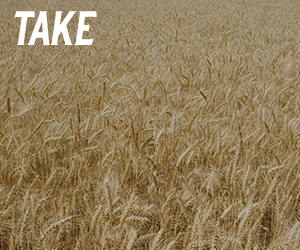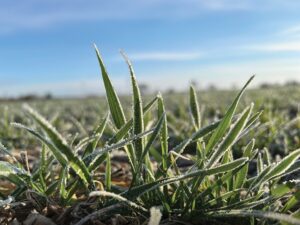A new strategic plan
FROM THE CEO'S DESK

GRAIN FARMERS OF ONTARIO’S Board of Directors implemented a new strategic plan at a planning meeting and Board meeting in September. Creating and regularly reviewing a strategic plan is a fundamental business practice that ensures we are addressing the evolving needs of our farmer-members and responding to the changing economic and social climate we are operating in. I’ve seen other not-for-profit groups and non-governmental organizations without a good strategic plan, or any plan at all, who try to be and do everything, and in the end, they accomplish very little.
This is the third version of our strategic plan — the first was implemented just six months after the inception of our organization in 2010 and we have completed two reviews since then. I would like to recognize Sandy Aird who first introduced me to the strategic planning process almost 30 years ago. When Grain Farmers of Ontario was looking for someone to lead our strategic planning process, I contacted Sandy, a former partner at Deloitte & Touche who also had a farm north of Toronto and now resides in Toronto. Sandy has done an admirable job in that leadership role and has clearly contributed to the success of Grain Farmers of Ontario. I want to thank Sandy for ensuring our strategic plan provides focus and direction.
Three years ago, when we issued our last strategic plan, sustainability was a new emphasis. However, we are living in a time of rapid and often unpredictable change; and now, the requirement of a social license for agriculture is being demanded by the public. We hadn’t even heard of the term social license three years ago. The prevalence of social media allows anyone to instantaneously react to any matter and impact others opinions about an issue. Those who don’t support modern agriculture have used this to their advantage to spread their own misinformed opinions which trend faster than actual facts. These challenges to agriculture are mounting, and in the absence of a strong unified voice for agriculture we face a difficult road ahead. This is exacerbated by the decline in agricultural knowledge and experience within our legislative assemblies which is leading to the implementation of activist-driven regulations which hinder our ability to operate.
Social license isn’t the only new issue we are facing. We are now in a period of lower financial returns and increased financial insecurity, we are seeing significant consolidation and foreign ownership within our industry, and world upheavals, such as terrorism and Brexit, are affecting the stability of our global markets. Any of these issues alone would be a good reason to review the direction of our organization, combined they reinforce our need to adapt in order to be the voice of farmer-members and provide them relevant support.
Now that we have identified the new priorities and goals of our organization, staff will develop actions we can take to achieve our goals. Moving forward, our plan includes a focus on knowledge transfer to our farmer-members: we will help you understand the growth of new markets and how we can protect our existing markets; we will keep you informed of new production practices to help increase the profitability of your farm; and we will help prepare you for the future of robotic technology. Our plan also includes making business risk management programs a higher priority for government and strengthening our relationships with elected officials to better anticipate and receive earlier warnings of political issues. We also hope to increase the diversity of our organization through the involvement of more women and visible minorities in order to better reflect the reality of who is involved in our industry today.
This is your organization’s plan for the future — I encourage all of you to read it. It will be made available online and in print by the end of this year. •
























